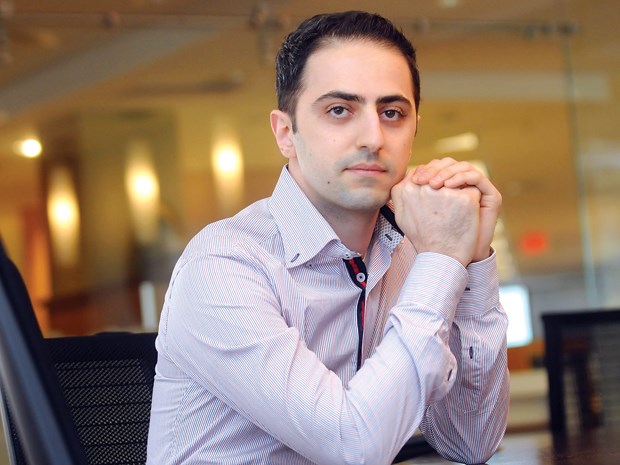A proposed overhaul of Canada's citizenship act has rankled residents who may see their citizenship delayed under the more stringent regulations.
Bill C-24, tabled in February by Conservative MP Chris Alexander, would institute higher standards for citizenship and tougher penalties for fraud. However, the bill also overlooks the contributions of international students, according to former North Vancouver resident Amin Yazdani.
While working on his master's degree in computer science,
Yazdani was excited about becoming a Canadian.
"I would have been eligible to apply for citizenship in December," he said. "But if the bill passes I'll have to wait an extra two years."
Currently, when applying for citizenship, international students and foreign workers can claim the first year they spent working or studying in Canada before they became permanent residents. Under the new bill, that first year as a non-permanent resident would not count.
"As an international student I lived in Canada for four years before I became a permanent resident. Those four years I. .. learned about the community and Canada and the values here. But they're basically saying that time has no value," he said.
Permanent residents used to be able to apply for citizenship after living in Canada for three out of four years. If the bill passes, they'll be waiting at least four years before applying.
However, the lag between making an application and being granted citizenship will be greatly reduced, according to North Vancouver MP Andrew Saxton.
When the Conservatives came to power in 2006, they inherited nearly one million citizenship applications, Saxton said.
"When you have that much backlog it just takes you longer to process it," he said.
"We expect that the current backlog will be reduced by more than 80 per cent by 2015/2016."
Instead of waiting two years for citizenship, residents will be granted citizenship status in 12 months or possibly less, according to Saxton.
The bill also eliminates citizenship court judges, speeding up the whole process, said Saxton.
However, Yazdani contended the system may lose efficiency in other areas. Whereas officials now investigate an applicant's residency dating back four years, they may now be charged with a six-year investigation.
Part of Canada's attraction is its citizenship process, according to Yazdani. If the bill passes, international students with an eye on citizenship may be dissuaded, he said.
"I have friends in Iran that are thinking about applying to Canadian universities to come here as international students," he said. "They're all a little bit disappointed and they're all thinking harder."
Saxton disagreed. "I don't think it's going to be a big issue," he said. "The whole purpose of this is to make sure that those applying for Canadian citizenship have a commitment to our country."
Under the changes, more applicants will be required to meet language requirements and pass a knowledge test, according to a release from Chris Alexander, the bill's sponsor.
The bill also includes maximum penalties of a $100,000 fine and five years in prison for citizenship fraud.



